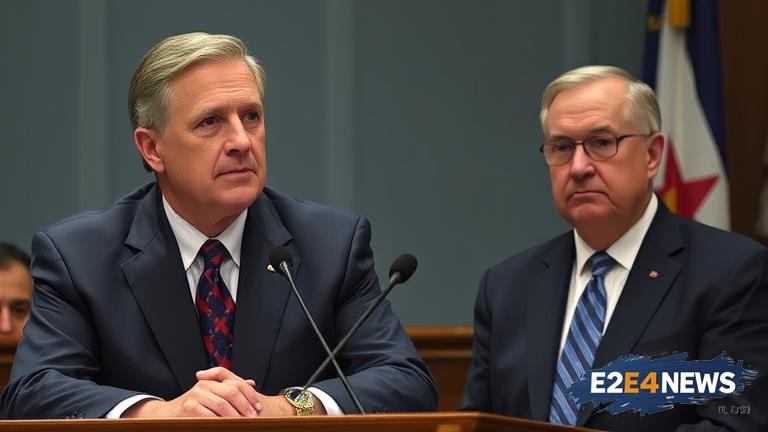The Senate has confirmed Joe Kent, a Republican, as the director of the National Counterterrorism Center (NCTC). The NCTC is a key agency in the US government’s counterterrorism efforts, responsible for analyzing and disseminating terrorism-related intelligence. Kent’s confirmation comes after a thorough vetting process, during which he faced questions from lawmakers about his qualifications and views on counterterrorism. Despite some initial concerns, Kent’s nomination was ultimately approved by the Senate, with many lawmakers praising his experience and expertise in the field. As director of the NCTC, Kent will play a crucial role in coordinating the US government’s response to terrorism threats, both domestically and internationally. He will work closely with other agencies, including the FBI, CIA, and Department of Homeland Security, to identify and disrupt terrorist plots. Kent’s confirmation is seen as a significant development in the US government’s ongoing efforts to combat terrorism, and his leadership is expected to have a major impact on the NCTC’s work. The NCTC was established in 2004, in response to the 9/11 attacks, and has since become a critical component of the US government’s counterterrorism apparatus. The agency is responsible for analyzing intelligence from a variety of sources, including human sources, signals intelligence, and open-source information. It also provides strategic and operational support to other agencies, helping to inform their counterterrorism efforts. Kent’s experience in the military and intelligence communities is seen as a major asset in his new role, and he is expected to bring a unique perspective to the NCTC. He has previously served in the US Army, including multiple tours in Iraq and Afghanistan, and has also worked in the intelligence community, including at the CIA. Kent’s views on counterterrorism are seen as hawkish, and he has been a vocal advocate for a more aggressive approach to combating terrorism. However, he has also emphasized the importance of working with international partners and using a range of tools, including diplomacy and economic development, to address the root causes of terrorism. The Senate’s confirmation of Kent’s nomination was seen as a significant victory for the Republican Party, which has been pushing for a more robust approach to counterterrorism. However, some lawmakers expressed concerns about Kent’s views, and the nomination process was not without controversy. Despite these concerns, Kent’s confirmation is seen as a major development in the US government’s counterterrorism efforts, and his leadership is expected to have a significant impact on the NCTC’s work. The NCTC plays a critical role in supporting the US government’s counterterrorism efforts, and Kent’s experience and expertise make him well-suited to lead the agency. As director, he will be responsible for overseeing the NCTC’s analysis and operations, and for working with other agencies to inform their counterterrorism efforts. Kent’s confirmation is also seen as a reflection of the ongoing evolution of the US government’s counterterrorism strategy, which has shifted in recent years to focus more on international cooperation and addressing the root causes of terrorism. The US government’s counterterrorism efforts are complex and multifaceted, involving a range of agencies and tools. The NCTC plays a critical role in supporting these efforts, and Kent’s leadership is expected to be a major factor in the agency’s success. The Senate’s confirmation of Kent’s nomination is seen as a significant development in the US government’s ongoing efforts to combat terrorism, and his experience and expertise make him well-suited to lead the NCTC. The US government’s counterterrorism efforts are expected to continue to evolve in the coming years, with a focus on addressing the root causes of terrorism and working with international partners to disrupt terrorist plots. Kent’s confirmation is seen as a major step forward in these efforts, and his leadership is expected to have a significant impact on the NCTC’s work.
